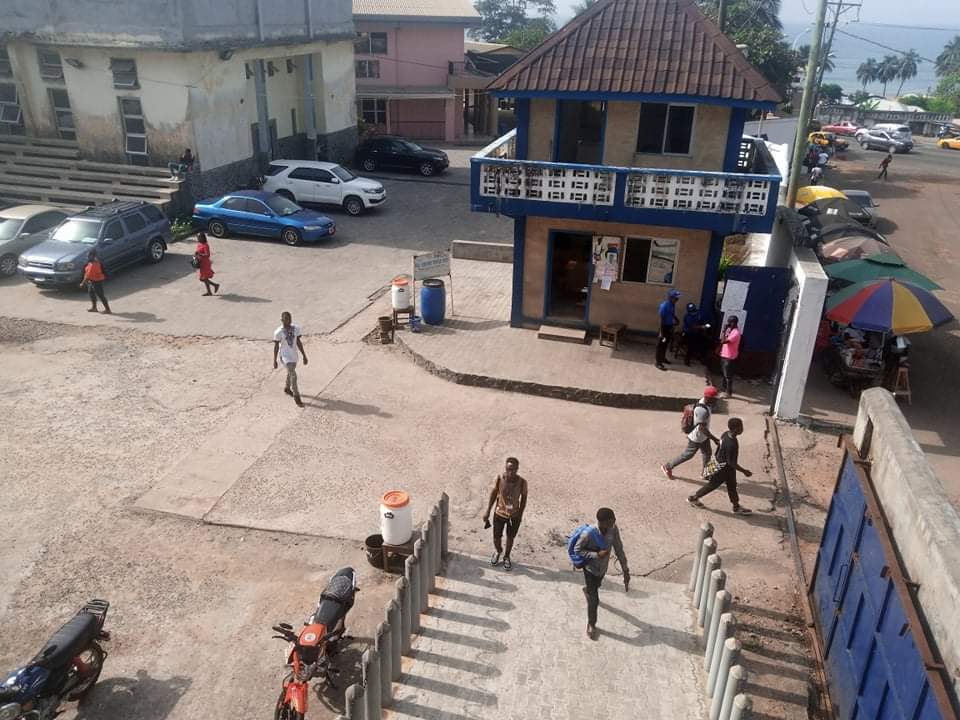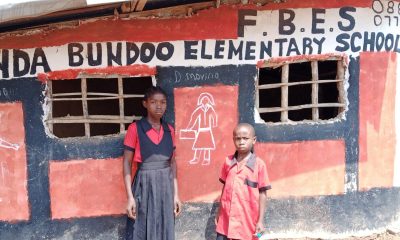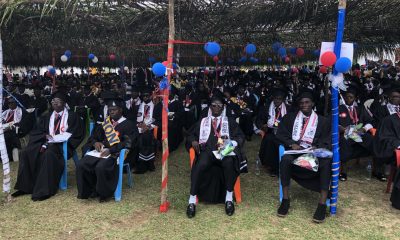
Monrovia – McCarthy Sieh, a sophomore student at the United Methodist University in Monrovia, returned to school a month ago with a certain apprehension. That was after the government had relaxed COVID-19 restrictions and allowed in-person classes.
Report By: Aria Deemie, LMD Responsible Health Reporting Fellow
Although Sieh is excited to continue his education, “fear and doubts” about COVID-19 still rumble his mind.
“It’s not clear who has the virus and who don’t have it, cause it [Covid-19] comes with symptoms relating to other common sicknesses,” said Sieh, who is even more concerned about the challenges the pandemic has brought to the learning environment.
“The pandemic has limited the free movement of students, access to research areas on campus to avoid students coming in close contact with one another is a challenge.”
Because of Covid-19 the administration of her university has reduced classes time from 1 hour to 45 minutes and it is mandated that all students go to school every week day and not any more based on the student’s own schedule, he explains.

Sieh is a sophomore student at the United Methodist University in Monrovia | Photo By: Aria Deemie
Abel D. Charlie, a student of the Stella Maris Polyethnic, is concerned that contracting COVID-19 would stall a student’s educational sojourn.
“If you have the virus and it’s confirmed your time in school will be wasted because you will be quarantined for days before returning back to school and you will miss out on your lessons,” asserts Charlie. “So, we students should try not to be infected with Covid-19; let’s see to it that our country be free from the virus”.
At the AME Zion University, Estella N. Liberty, another sophomore student, is also worried about challenges that the pandemic has created for students.
Adhering to physical distancing is tough for many students like Estella, whom, before the pandemic, was fond of mingling with her pals on campus.
“We’re not living the life of freedom anymore,” she says. “We no more embrace each other like we used to, even the preventive measures show that things are not normal as it were before.”

Estella is a sophomore student at the AME Zion University. She says COVID-19 has changed life on her campus | Photo By: Aria Deemie
While some students are worried about contracting the virus amid the accompanying economic constraints that the pandemic has created, others have some doubts.
Jerome N. Nagbe is a freshman at the Stella Maris Polythetic. Nagbe says he is not afraid about contracting the virus because of the increasing public disregard for health protocols.
“Restrictions have been lessened on the cars we ride to come to school and other social gatherings like the just ended county meet — I saw that it was very much overcrowded, if the virus was here the crowd would have been dispersed,” he argues.
However, Nagbe claims that he tries to follow the preventive measures prescribed by the school administration.
“It is more like practicing hygiene – washing hands and wearing nose mask,” he said. “Watching your hands frequently maybe covering your nose and mouth are things we do to prevent yourself from inhaling dust and harmful substances, and from also inheriting germ and bacteria; it doesn’t have to only be from the virus. We Students should follow those methods to keep healthy and abide by the rules of the school administration.”
Like Nagbe, Maggie P. Colnoe also of Stella Maris Polytechnic, says despite the concerns that the pandemic brings, she still feels safe while at school.
She holds the view that “the country is safe” despite the number of COVID-19 cases that have been recorded since March 2020.
Latest figures released by the National Public Health Institute of Liberia show that the country has recorded 1,956 confirmed cases of Covid-19 since the outbreak. Out of this number 1, 770 people have recovered, 84 persons have died and 102 are currently undergoing treatment.
Despite the relative low number of confirmed cases, public health experts have warned against the ignoring the preventive measures, stressing that this exposes the population to a resurgence of the virus.

Ms. Colnoe is a student of Stella Maris Polytechnic | Photo By: Aria Deemie
But Ms. Colnoe says many people are taking precaution despite concerns about the flagrant flouting of the health protocol.
“We got more healthy people so I feel like we’re safe, because people are aware of the symptoms and wouldn’t want to come around others when they’re sick,” she said.
“For me if one of my friends have cold, I can tell them to go home and get treated. I advised that my fellow students keep wearing their masks, washing their hands to prevent themselves from getting the virus or spreading it.”
Aria Deemie is a practicing Liberian journalist, who is studying social work at the Mother Patern College of Health Sciences in Monrovia. She has acquired training from the SheWrites; SheLeads journalism mentorship program and LocalvoicesLiberia Media Network. Aria seeks to bring to light issues that have been withheld in the dark. She hopes to speak to the conscience of perpetrators of human rights abuses through her reports.


Methodology

True
The claim is rigorous and the content is demonstrably true.

Half True
The statement is correct, although it needs clarification additional information or context.

Unproven
Evidence publicly available neither proves nor disproves the claim. More research is needed.

Misleading
The statement contains correct data, but ignores very important elements or is mixed with incorrect data giving a different, inaccurate or false impression.

False
The claim is inaccurate according to the best evidence publicly available at this time.

Retraction
Upon further investigation of the claim, a different conclusion was determined leading to the removal of the initial determination.

Toxic
A rude, disrespectful, or unreasonable comment that is somewhat likely to make you leave a discussion or give up on sharing your perspective. Based on algorithmic detection of issues around toxicity, obscenity, threats, insults, and hate speech;
































































































































































































































































































































































































































































































































































































